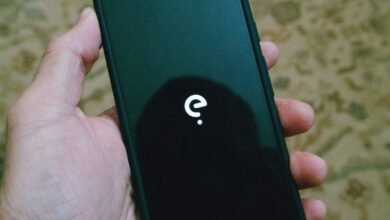Android to Alert Users About Fake Cell Towers

▼ Summary
– North Korea has deployed IT workers to infiltrate Western businesses, with the US Justice Department recently arresting one American and seizing assets in a major crackdown.
– Scattered Spider hackers have resumed cyberattacks in 2024, disrupting retailers, insurers, and airlines after a quiet period.
– Google plans to enhance Android security in version 16 to detect and alert users about insecure networks and potential cell-site simulator surveillance.
– Iran-linked hackers stole emails from Trump’s campaign and may release more, with US officials calling it a foreign smear campaign.
– Chinese hacker group Salt Typhoon has infiltrated US telecom networks but is currently dormant, according to the FBI’s cyber division leader.
– A deepfake platform, Clothoff, allegedly plans to expand nonconsensual explicit content creation, despite denying claims about its budget and team size.
Android devices will soon warn users when connecting to fake cell towers, marking a significant step in combating unauthorized surveillance. This new feature, expected in Android 16, aims to protect users from cell-site simulators, devices that mimic legitimate towers to intercept calls, messages, and location data. Google’s update will alert individuals when their device connects to unencrypted networks, reducing vulnerabilities to snooping.
The technology behind these fake towers, often called stingrays or IMSI catchers, has been used by law enforcement and other entities for years. Android’s upcoming security enhancements will notify users if their device identifiers, like SIM or device IDs, are requested by suspicious networks. Warnings will appear when calls or data transmissions are at risk of interception, along with confirmations when secure connections are restored. While the feature will debut in Android 16, widespread adoption may take time as hardware compatibility becomes standard.
Meanwhile, cybersecurity threats continue to escalate globally. North Korean IT workers have infiltrated Western companies, funneling salaries back to their regime, prompting a major crackdown by the U.S. Justice Department. Authorities recently seized over 200 computers and financial accounts linked to these operations. Separately, the notorious Scattered Spider hacking group has resurfaced, targeting retailers, insurers, and airlines with disruptive cyberattacks.
In another alarming development, Iran-linked hackers have threatened to release stolen emails from Donald Trump’s campaign, including correspondence from key advisors. U.S. officials dismissed the move as a foreign disinformation campaign aimed at sowing division.
Chinese cyber espionage remains a persistent concern, with the Salt Typhoon group breaching multiple U.S. telecom networks. Though currently contained, these hackers retain access, posing long-term risks to data security.
On a disturbing note, deepfake platforms like Clothoff are reportedly planning to expand their operations, generating nonconsensual explicit images of public figures. Leaked documents suggest the service has a substantial budget and a growing team, raising ethical and legal concerns.
As digital threats evolve, Android’s proactive measures against fake cell towers highlight the ongoing battle for privacy and security in an increasingly connected world. Users are urged to stay vigilant and leverage available protections to safeguard their data.
(Source: Wired)




